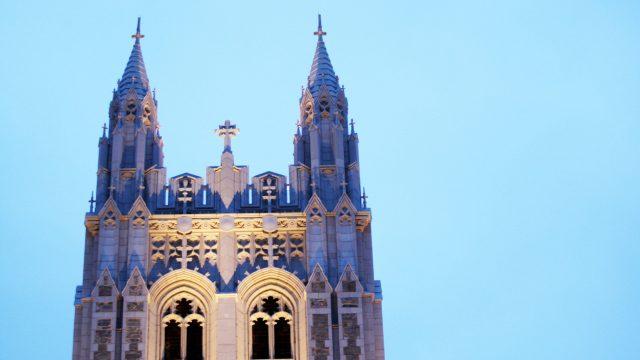Boston College is in the process of recruiting three new professors who will serve as core faculty members in the African and African Diaspora Studies Program (AADS), which will increase the program’s current core faculty from six to nine and likely expand its course offerings for the 2017-18 school year. Each of the hires will have a joint appointment in AADS and a “tenure home” in a specific department.
The English department is handling one of the hirings, a tenure-track position in African American literature and culture. Director of AADS Martin Summers said in an interview Wednesday that a little over 100 applications were received for the other two positions, which will be focused on race, religion, and the African Diaspora. AADS is overseeing the hiring process for these two positions.
The AADS hiring committee has narrowed the field of applicants to a final six, with three vying for each position. They will begin coming to campus next week for a day and a half of extensive interviews, with the last applicant visiting in mid-February.
One of the two will be based in the theology department and have a joint appointment with AADS. The other position was open to applicants from a wide array of fields, including history, anthropology, and political science, who specialize in the religious experiences of African-descended people, according to the AADS website. Summers said the three finalists for that position are two historians and one art historian, so the eventual appointee will be based in either the history department or the art, art history, and film department.
The English department position had an Oct. 12 deadline, and the other positions had an Oct. 15 deadline. All three positions are open-rank, meaning applicants could range from current Ph.D. students to tenured faculty at other schools. After the application window closed, some preliminary interviews were held in late November at the American Academy of Religion Conference in San Antonio, and the remainder of the interviews were held in late November and early December.
In March, Introduction to African Diaspora Studies was added to the social science core and African Diaspora in the World War I and II were added to the history core. That followed a report released by the Undergraduate Government of BC in January 2015 called “Towards a More Inclusive Community,” which suggested that BC give more support and funding to programs like AADS “that accurately reflect the history, culture and perspective of underrepresented people in America.”
Summers said he had been in conversation with Provost and Dean and Faculties David Quigley and Dean of MCAS Rev. Greg Kalscheur, S.J., about adding positions from the summer of 2015 to last winter.
“I was happy to authorize searches for AADS this year and I’m hopeful that we’ll welcome some talented new colleagues to the faculty later this year,” Quigley said in an email. “I continue to work with deans, department chairs and program directors across the University to hire and retain a diverse and excellent faculty.”
The AADS website says that the program envisions successful applicants as teaching classes such as Introduction to African and African Diaspora Religions, Religion in Africa, and Varieties of Black Religious Experience, among others.
Summers said that the hirings will give the program the opportunity to explore becoming a major down the line, because, between 13 affiliated faculty and nine core faculty, eventually there could be a “critical mass” of professors necessary to become a major. Currently, AADS offers a minor. He cautioned, though, that becoming a major will depend on interest from students, particularly those who would want AADS as their only major. As of Wednesday night, 10 of the 17 AADS classes being offered this semester are full.
Summers has a year and a half left as director of AADS, around which time the program is scheduled to go through an external review, when its long-term goals will be discussed.
“[The hirings] will certainly change the intellectual environment in AADS, because we’ll be adding three more people with whom the existing core faculty can engage with around our shared research interests,” Summers said.
Featured Image by Margaux Eckert / Heights Staff



















